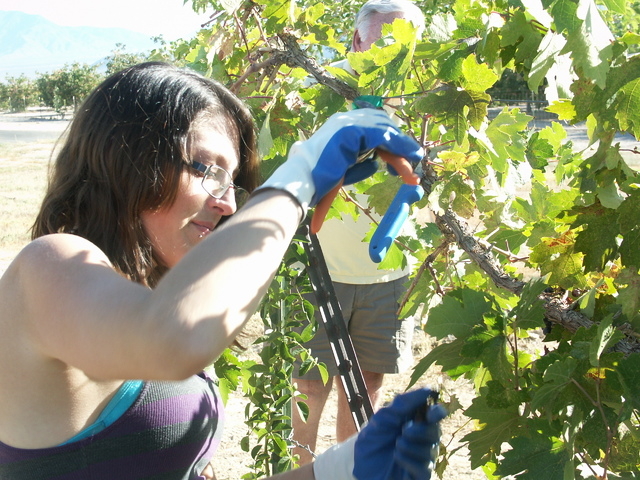
Local wineries concerned that a bill would tarnish the state’s wine industry successfully added an amendment allowing for some regulation focused on Nevada-based fruit.
The amendment to Assembly Bill 4, that was passed as amended Friday by the Assembly Committee on Commerce and Labor, added that a winery using less than 25 percent of grapes grown in Nevada be limited to no more than 1,000 cases of wine in a calendar year.
Bill Loken of Pahrump Valley Winery, one of the main proponents of the amendment, explained the push for the 25 percent clause was not merely a monetary move.
“We don’t really see it as a financial impact,” Loken said. “We support that idea because it helps promote grape growing throughout the state, which is good for the farmers to get off of alfalfa. Grapes produce more income per acre, use 1/10th of the water, promotes agritourism, and requirements for homegrown fruit are very common throughout the United States, so that’s not an unusual request.”
Also included in the amendment was the allowance of a winery licensed on or before the bill’s effective date to sell or serve its wine and alcoholic beverages at the location of the winery and one other location. The wine sold at the second location may not exceed 50 percent of the total wine sold by the winery.
The bill, sponsored by Assemblyman Pat Hickey, R-Reno, originally stated that it will allow any county in Nevada to import wine or juice for fermentation, mixing it with other wine or aging in the state, or to sell wine at retail or serve wine or any other alcoholic beverage by the glass at the location of the winery.
Assemblyman James Oscarson, whose district includes Pahrump, pushed for the proposed amendment.
Wineries licensed on or before the effective date of the bill will have 10 years to come into compliance with the restriction. Also, the amendment restricts a wine-maker licensee from selling alcoholic beverages or producing wine on the premises of another winery.
If the bill would have stayed as is before the amendment was introduced, Loken feared that large companies would migrate to Nevada and do little to boost the state’s wine industry.
“The way AB4 was proposed would not prohibit anyone from opening up huge bottling plants anywhere in the state that they wanted to and import as much California, or Washington, or Oregon wine, bottle it the next day and sell it,” Loken said. “That does not promote a wine industry, that promotes a particular business.”
Jack Sanders of Sanders Family Winery, another key backer of the amendment, strengthened that argument, adding state honor was at stake.
“What it does is it ensures that rather than having a whole lot of bulk wine being imported into the state and just bottled, what it does is give us Nevada pride in our own particular grapes that we’re growing here, that we can say that we have vintage grapes that are growing here in the state of Nevada,” Sanders said.
Under current law, which went into effect in February 1987, only wineries located in a county with less than 100,000 people may do so. If the bill would have gone through as first introduced on Dec. 19, 2014, Sanders said that would have undermined the law’s initial purpose.
“If the bill had passed as they had asked it to be passed, what it would have done was not require anybody to grow any grapes or produce anything in Nevada, and that’s not what the intent of the original legislation was,” Sanders said. “The original legislation was to create a wine industry in the state of Nevada, and that’s what the 25 percent rule does.”
The bill must now be passed by the senate and approved by Gov. Brian Sandoval before it is enacted into law.